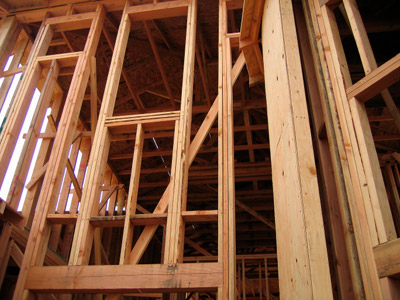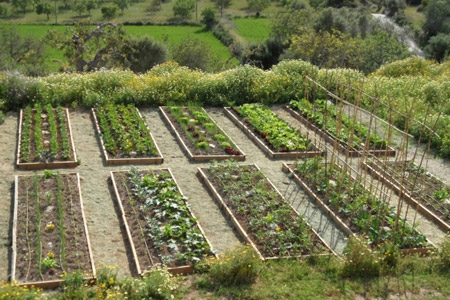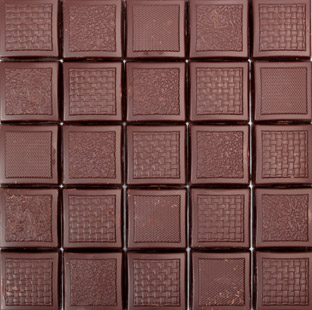It's hard to imagine a world without quadrilaterals. On the previous pages, you discovered many quadrilaterals that you encounter in everyday life. Some careers and industries rely on a knowledge of quadrilaterals much more than others. See if you can identify the properties of quadrilaterals required to design each of the objects below.
|
Quadrilaterals show up often in glassware design—circles and ovals aren't always the most useful shapes for holding food.
Can you see the quadrilaterals at this construction site? What special quadrilateral is most noticeable in the image? The studs in this building's walls form multiple rectangles.
The agricultural industry supplies us with food, and some plants grow better in raised beds. What properties of the quadrilaterals in this design help strengthen and stabilize the beds? All rectangles include only right angles, which make the shape sturdy enough to hold a ton of dirt or the roof of a house.
What shape was the mold that this candy maker used to create her chocolate goodies? Why is this shape so popular for candies? Each piece is a square, a shape that is easy to replicate in bite-sized proportions. The candy also slips out of the mold more easily with a convex shape than a concave one with acute angles. |
![By IngolfBLN [CC-BY-SA-2.0 (http://creativecommons.org/licenses/by-sa/2.0)], via Wikimedia Commons](https://s3.amazonaws.com/cms.accelerate-ed.com/image/c801a115-5f64-410f-9ab5-a7f87c4dbb31.jpg)
![By ChrisEngelsma (Own work) [CC-BY-3.0 (http://creativecommons.org/licenses/by/3.0)], via Wikimedia Commons](https://s3.amazonaws.com/cms.accelerate-ed.com/image/3726af82-4924-4c25-a47c-3025d95505be.jpg)



